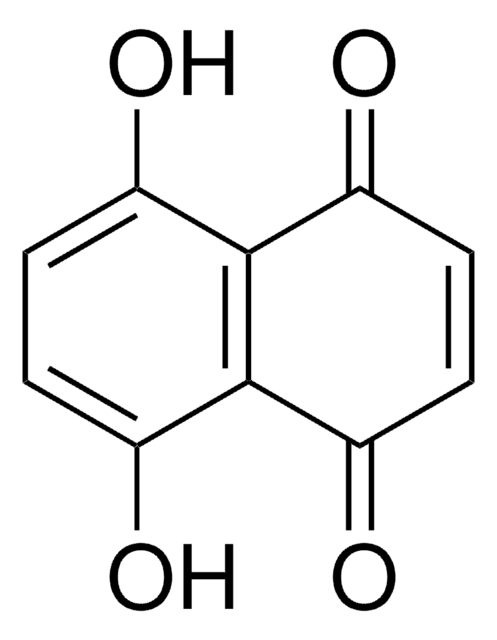SML3622
CAY10444
≥98% (HPLC)
Synonym(s):
(4R)-2-Undecyl-4-thiazolidinecarboxylic acid, 2-Undecylthiazolidine-4(R)-carboxylic acid, BML 241, BML-241, BML241, CAY 10444, CAY-10444
Sign Into View Organizational & Contract Pricing
All Photos(1)
About This Item
Empirical Formula (Hill Notation):
C15H29NO2S
CAS Number:
Molecular Weight:
287.46
MDL number:
UNSPSC Code:
12352200
NACRES:
NA.77
Recommended Products
Quality Level
Assay
≥98% (HPLC)
form
powder
color
white to beige
solubility
DMSO: 2 mg/mL, clear (Warmed)
storage temp.
-10 to -25°C
Biochem/physiol Actions
CAY10444 is a selective sphingosine-1-phosphate (S1P) receptor 3 (S1P3; EDG3) antagonist that inhibits 1 µM S1P-induced calcium mobilization in HeLa transfectants that express S1P3 over those expressing S1P1/CD363/EDG1 (37.6% vs 6.92% inhibition by 10 µM CAY10444).
Storage Class Code
11 - Combustible Solids
WGK
WGK 3
Flash Point(F)
Not applicable
Flash Point(C)
Not applicable
Certificates of Analysis (COA)
Search for Certificates of Analysis (COA) by entering the products Lot/Batch Number. Lot and Batch Numbers can be found on a product’s label following the words ‘Lot’ or ‘Batch’.
Already Own This Product?
Find documentation for the products that you have recently purchased in the Document Library.
Alessandra Bigi et al.
The FEBS journal, 290(1), 112-133 (2022-07-20)
Soluble oligomers arising from the aggregation of the amyloid beta peptide (Aβ) have been identified as the main pathogenic agents in Alzheimer's disease (AD). Prefibrillar oligomers of the 42-residue form of Aβ (Aβ42 O) show membrane-binding capacity and trigger the
Inhibiting Sphingosine 1-Phosphate Receptor Subtype 3 Attenuates Brain Damage During Ischemia-Reperfusion Injury by Regulating nNOS/NO and Oxidative Stress
Frontiers in Neuroscience, 16, 838621-838621 (2022)
Yuuki Koide et al.
Journal of medicinal chemistry, 45(21), 4629-4638 (2002-10-04)
Sphingosine-1-phosphate (S1P) is an intracellular second messenger and an extracellular mediator through endothelial differentiation gene (EDG) receptors, which are a novel class of G-protein-coupled receptors. Although EDG has attracted much attention because of its various roles, no selective agonists or
Our team of scientists has experience in all areas of research including Life Science, Material Science, Chemical Synthesis, Chromatography, Analytical and many others.
Contact Technical Service







